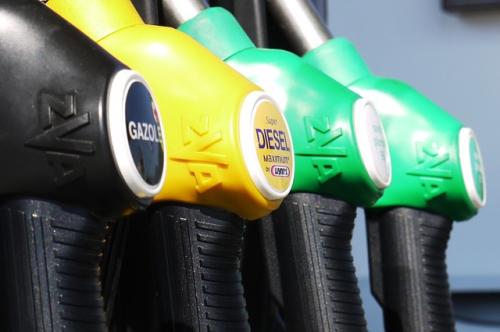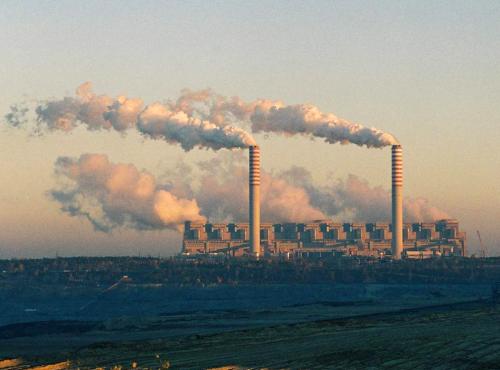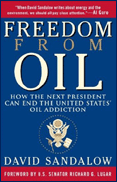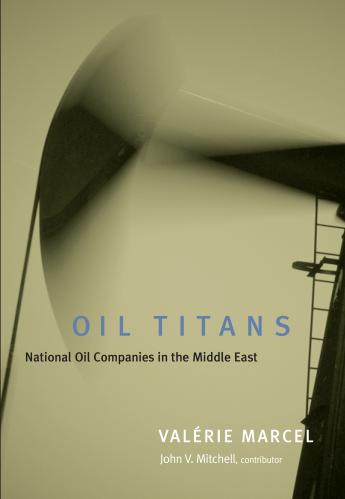Content from the Brookings Institution India Center is now archived. After seven years of an impactful partnership, as of September 11, 2020, Brookings India is now the Centre for Social and Economic Progress, an independent public policy institution based in India.
Oil will diminish in significance in a reconfigured energy system.
Decades hence, 2015 might well be seen as the year the oil era entered the phase of terminal decline. For during this period, there was a convergence of action and sentiment against oil products and oil companies. The Paris summit on climate change heralded a multinational effort to shift the global energy system away from fossil fuels. The props on which petroleum companies have built their vast businesses eroded if not fell away. “Clean energy” products and technology made their way to the forefront of the policy agenda. And public sentiment called for a weakening of the nexus between economic development and carbon-intensive energy demand.
Oil has had a long innings. It has been in use for over 150 years but the decisive turn towards the “oil age” happened just over a hundred years back. In 1911, Winston Churchill as minister of the navy decided to convert the British naval fleet from coal to oil. This was a bold decision. On the one hand, oil enabled an acceleration of speed; it was cleaner; it required less storage space; and it allowed for mid-ocean refuelling. On the other, Britain did not have any indigenous oil and the conversion was expensive to implement. In the end, the decision paid off in spades. The British navy outgunned and out-sped the German navy and the now manifest superiority of the internal combustion engine pushed the world into the oil age.
A hundred years on, this age may be coming to an end. Four forces are pushing this along.
The first is the global consensus that oil (along with coal) is responsible for climate change. The agreement in Paris may not stave off the threat of rising sea levels, receding glaciers and extremes of weather but the fact that the world read from the same global warming script is potentially game-changing.
The second is the shaky state of the petroleum industry business model. On the supply side, there is now no “easy oil” left to discover and the marginal cost of incremental barrels is increasingly higher; the lead times are stretching into decades and the operating context is subject to tightening regulations. On the demand side, the conversation is all about “peak demand”. Will companies find the markets to monetise their hydrocarbon reserves? Further, oil prices look as if they are on a secular downward curve. Most experts expect prices to rise from current levels but they believe this rise will be modest. This is because the market is flush and demand is structurally depressed. The larger point is that companies are now confronting uncertain economics and the increasing probability of stranded assets.
The third is clean energy technology. California is often seen as America in emergence and America as the herald for the rest of the world. This is no doubt a crudity but if there was a grain of relevance to this observation, then a trip to California would be salutary. Tesla’s electric vehicle is in abundant evidence on the roads; the world’s best scientists are in Stanford, Berkeley and Silicon Valley, and they are working hard to find the missing links required for commercialising and scaling up solar and wind energy and alternatives to diesel and gasoline as transportation fuels. California has passed a law requiring all grid electricity and transportation to be powered by renewables and nuclear by 2050. Clean energy discussion is now on the agenda at every international meet and most leaders today see the import of this subject.
Finally there is public sentiment. The anti-fossil fuel lobby is no longer limited to environmental activists. As people choke on the smog of air pollution, public opinion is looking to hold the fossil fuel industry accountable for environmental damage. A number of lawsuits have been filed against oil and coal companies. None have been upheld so far but the signals are clear. It is but a matter of time before these companies face the legal and reputational pressures that the tobacco companies had to deal with years back.
Churchill’s decision did not lead to the end of coal. It remained very much a part of the 20th-century energy basket. Similarly, the confluence of the above four forces will not mean the end of oil. It will continue to flow within the interstices of the 21st-century economy. But it will diminish in significance and we may need to develop a different vocabulary to describe the reconfigured energy system.
This article first appeared in Indian Express on January 04, 2016. Like other products of the Brookings Institution India Center, this is intended to contribute to discussion and stimulate debate on important issues. The views are those of the author.









Commentary
Op-edEnd of the oil age
Indian Express
January 4, 2016